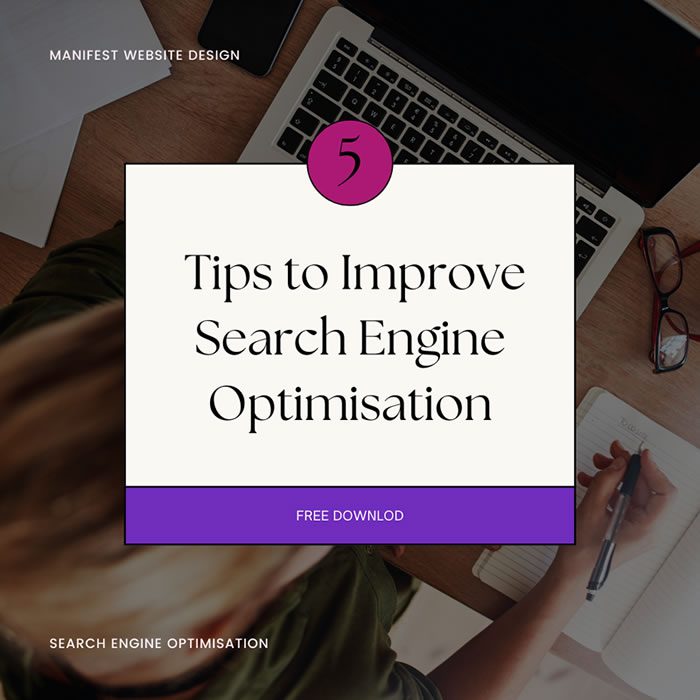The SEO Advantage of Small Businesses
When the topic of Search Engine Optimisation or SEO gets tossed around, you, as a small business owner, might be tempted to shrug it off. Perhaps you’ve questioned its effectiveness. After all, it might just be another digital buzzword, more applicable to the Amazon and Google-sized behemoths out there. If anything, the battle for online visibility feels like a modern David and Goliath story, where you’re not the giant.
So does SEO work for a small business? Yes, SEO does work for up-and-coming brands. It’s a tool that can help your business become more visible online by improving your ranking on search engines like Google. When implemented correctly, it can attract potential customers who are actively searching for products or services like yours.
Despite the size of your business, an effective SEO strategy can level the playing field, allowing you to compete with larger businesses in the digital arena.
Does SEO Work for Small Business?
SEO works exceptionally well when employed strategically. The beauty of SEO is that it isn’t a lottery system where large corporations have all the winning tickets. In fact, it’s quite the contrary.
The rules of the SEO game are dictated by algorithms – not by bank accounts or brand reputation. The focus isn’t on who you are but on what you provide: the quality of your content, its relevance to the audience, and how well it answers their queries.
The simplicity of SEO is its beauty. It’s not about shoving ads in someone’s face but providing them with what they are actively seeking. As a small business, you have the advantage of being nimble, adaptable, and personal in your approach. You’re not bound by corporate red tape or generic marketing strategies that cater to everyone and no one at the same time.
Example
When Sarah first started “Sarah’s Sweet Treats,” her client base was limited to her small town. The storefront was charming, but foot traffic was sparse – she knew she had to do something different to stand out from the crowd. Instead of buying billboard space or airing a local TV spot, Sarah invested her limited budget into developing a robust SEO strategy for her website.
She started by conducting keyword research to understand what potential customers were searching for. To her surprise, she discovered that the demand for gluten-free baked goods was on the rise, and not many local bakeries catered to this niche.
So she updated her website to include these keywords, developed a blog section sharing delicious gluten-free recipes, and started promoting her new range of gluten-free pastries. As a result, her bakery started appearing at the top of search results for gluten-free bakeries in her area. She didn’t care about casting the widest net but, rather, about casting the right one.
Related articles:
Best Ecommerce Platforms For SEO (2023)
A Beginner’s Guide to Digital Marketing
7 Reasons Why Your Website Isn’t Showing on Google + Quick Fixes
How to Make SEO Work as a Small Business Owner
1) Focus on Local SEO
Local SEO is a method used to reach out to customers in your locality, tapping into their unique requirements, and catering to their specific demands. In simpler terms, it’s the surest way of becoming the go-to business in your locale.
Implementing local SEO involves several steps, including optimising your Google My Business profile, collecting and managing online reviews, and ensuring that your name, address, and phone number (NAP) are consistent across all online platforms. But the core of local SEO is understanding your community’s needs and meeting them with the services you offer.
Take the example of a local clothing boutique. They knew that their audience, primarily composed of environmentally-conscious millennials, was searching for “sustainable fashion stores near me”. They optimised their website and content to match these keywords, and before long, they were attracting more foot traffic and online orders from local customers.
2) Create Lots of High-Quality Blog Posts
Content is undeniably king. However, it’s not just about creating content; it’s about creating high-quality content that engages, educates, and, above all, provides value to your readers. One of the most effective ways to do this is through regular blogging.
A single blog post can do wonders for your SEO. It can help you rank for specific keywords, provide fresh content for your website, and increase dwell time. Just imagine what would happen to your website if it was filled with great content that keeps your readers coming back for more.
On a personal note, I’ve experienced the power of blogging firsthand. When I launched my own website design and digital marketing business, I knew I was stepping into a saturated market. To stand out, I decided to start a blog, providing actionable insights on business strategy.
I made sure to publish at least one post per week, focusing on quality and relevance. Over time, not only did my website begin to rank higher for various strategic keywords, but the blog also became a source of lead generation as it attracted potential clients who were impressed by the content.
Related articles:
Content Pillars: The Secret to Content Marketing Success
3) Follow Technical SEO Best Practices
Technical SEO refers to the backend tweaks and optimizations you can make on your website to ensure it can be easily crawled and indexed by search engines. It may not be as glamorous as content creation or keyword research, but it’s just as important – if not more.
Following technical SEO best practices involves ensuring your website is mobile-friendly, improving site speed, creating a clear and logical site structure, and making sure your website is secure. While these tasks might seem daunting, especially if you’re not tech-savvy, they are crucial to the overall performance of your website in search engine rankings.
4) Use Google Analytics
Google Analytics takes the guesswork out of SEO.
It provides detailed data about your website visitors – where they’re coming from, which pages they visit, how long they stay, and so much more. It helps you understand what’s working well on your site and what needs to be improved. It’s a compass that points you in the direction you need to go to meet your business goals.
Imagine a local gym that uses Google Analytics to track the performance of its blog posts. They find out that their post about “Beginner’s Guide to Weightlifting” is attracting the most traffic. So they decide to create more content around this topic to attract and engage their audience further.
5) Outsource
As a small business owner, you’re already wearing multiple hats. From managing day-to-day operations to handling finances, marketing, and customer service – your plate is full. When it comes to SEO, it’s not just about knowing what to do but having the time and expertise to do it effectively. That’s where outsourcing comes in.
Outsourcing your SEO needs to a freelance professional or agency allows you to tap into their expertise without having to invest your time in learning and implementing SEO strategies yourself.
By outsourcing, you also free up time to focus on what you do best: running your business. It’s about working smarter, not harder, and leveraging the skills of others to grow your business in the digital landscape.
Outsourcing may seem like a big step, especially for small businesses. But it’s an investment that can pay huge dividends in the form of improved online visibility, increased traffic, and ultimately, more customers. It allows you to leverage the expertise of SEO professionals, freeing up your time to focus on your core services.
6) Play the Long Game
SEO is a marathon, not a sprint. It’s about building a strong foundation, consistently producing high-quality content, and continually optimising your website. Yes, it takes time and effort, but the results (e.g., increased visibility, higher rankings, more traffic, and more customers) are well worth it.
Results are rarely instantaneous. You won’t shoot to the top of Google’s rankings overnight. But with consistent effort, you’ll see steady progress. Over time, this progress compounds, leading to significant improvements in your online visibility and search engine rankings.
SEO requires patience and perseverance. It’s about building momentum over time, and once you gain that momentum, maintaining it becomes much easier.
SEO Helps You Stand a Chance Against the Big Brands
To all small business owners, remember this: Just because you’re small, it doesn’t mean you can’t play big. Know the rules. Play smart. Leverage your strengths. You have the advantage of agility, personalisation, and local connections. You can deliver a level of customer intimacy that big brands can only dream of. But to do that, you need to be seen, and SEO is your ticket to the spotlight.
This is where we step in. Manifest Website Design, a digital marketing agency, champions small businesses. We’re here to help you level the playing field, to stand by you in your digital battle against Goliath. We’ll help your business become not just another face in the crowd, but a recognisable and trusted name in your industry. Learn how your small business can make a big impact today.

ANA AMISTAD
About the Author
Ana is a Content Manager at Manifest Website Design specialising in digital marketing, SEO, and meaningful stories. Her byline is often found 3,000 feet above sea level.
After hours, she enjoys psych thrillers, reading, dying in video games, and having good conversations. You can reach out to her on LinkedIn.




